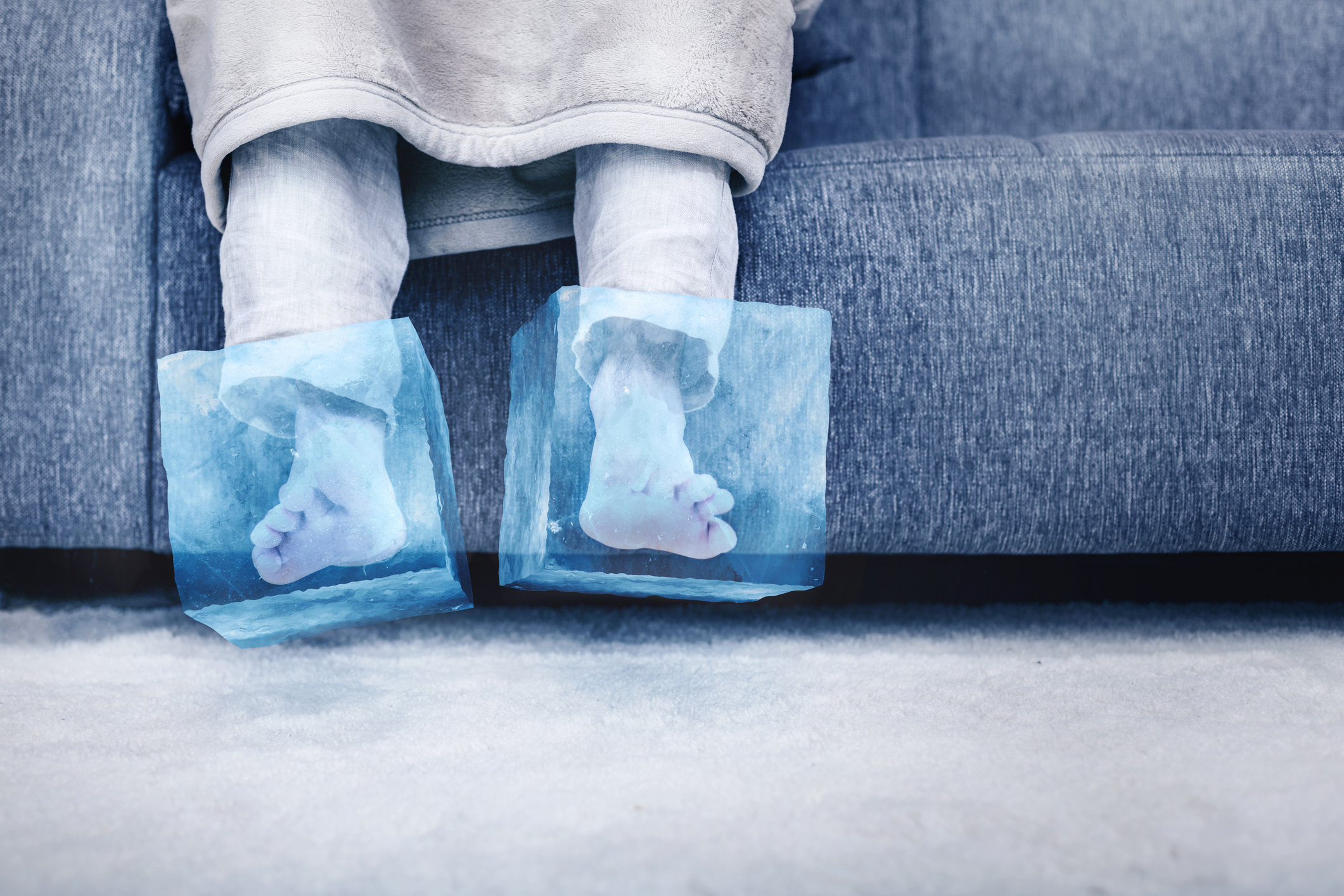As winter temperatures plummet, loved ones worry about elderly adults, especially seniors with dementia who may become disoriented outdoors and suffer from hypothermia. But what may be less well-known is the risk of hypothermia in a very cold house for older adults who can lose body heat more quickly and be less aware of getting cold enough for serious health problems to occur.
Older adults may not be able to regulate their body temperature as well as a younger person, and if they are trying to save money by turning the thermostat down, they can be at risk for heart attack, kidney problems, or liver damage as a result of a very low body temperature. According to the National Institute on Aging, hypothermia in an older person can occur when the body temperature reaches 95°F or lower.
It’s important for friends and family to check in frequently with older adults living alone or in an assisted living facility to make sure the home or rooms are kept warm enough and the person is dressed warmly. The indoor temperature should be kept at between 68 and 70°F and windows and doors should be checked for gaps to make sure they are not letting cold air inside.
Making sure seniors are getting enough to eat during the cold winter months is also important – body fat helps older adults stay warmer. Elderly adults should dress warmly on cold days, even indoors, and wear socks, slippers, or even a cap to keep warm. Alcoholic drinks should be limited or avoided because they can also cause a loss of body heat. Space heaters may be tempting to use to heat up one area of the home but they are both a fire hazard and some can cause carbon monoxide poisoning.
If older adults do need to venture out in very cold, windy weather, it’s important to dress in warm layers, including a hat and scarf, and limit time outdoors. Wet or damp clothing should be changed as soon as possible once indoors again and replaced with warm, dry layers.
Some medications including cold medicines can also affect body heat. Talk with your doctor about illnesses and drugs, both prescription and over-the-counter, that may make it more difficult for seniors to retain body heat.
Warning signs of hypothermia:
- Cold feet and hands
- Puffy or swollen face
- Pale skin
- Shivering (in some cases the person with hypothermia does not shiver)
- Slower than normal speech or slurring words
- Acting sleepy
- Being angry or confused
Seek medical treatment immediately for yourself or a loved one if you notice these early signs of hypothermia. After calling for help, try to keep the person warm with a blanket, coat, or body warmth. A warm drink, without alcohol or caffeine, may also help. Do not rub the person’s arms or legs, try to put them in a warm bath or use a heating pad. Learn more about hypothermia by following this link to Johns Hopkins Medicine Health.






Add Your Voice
0 Comments
Join the Discussion